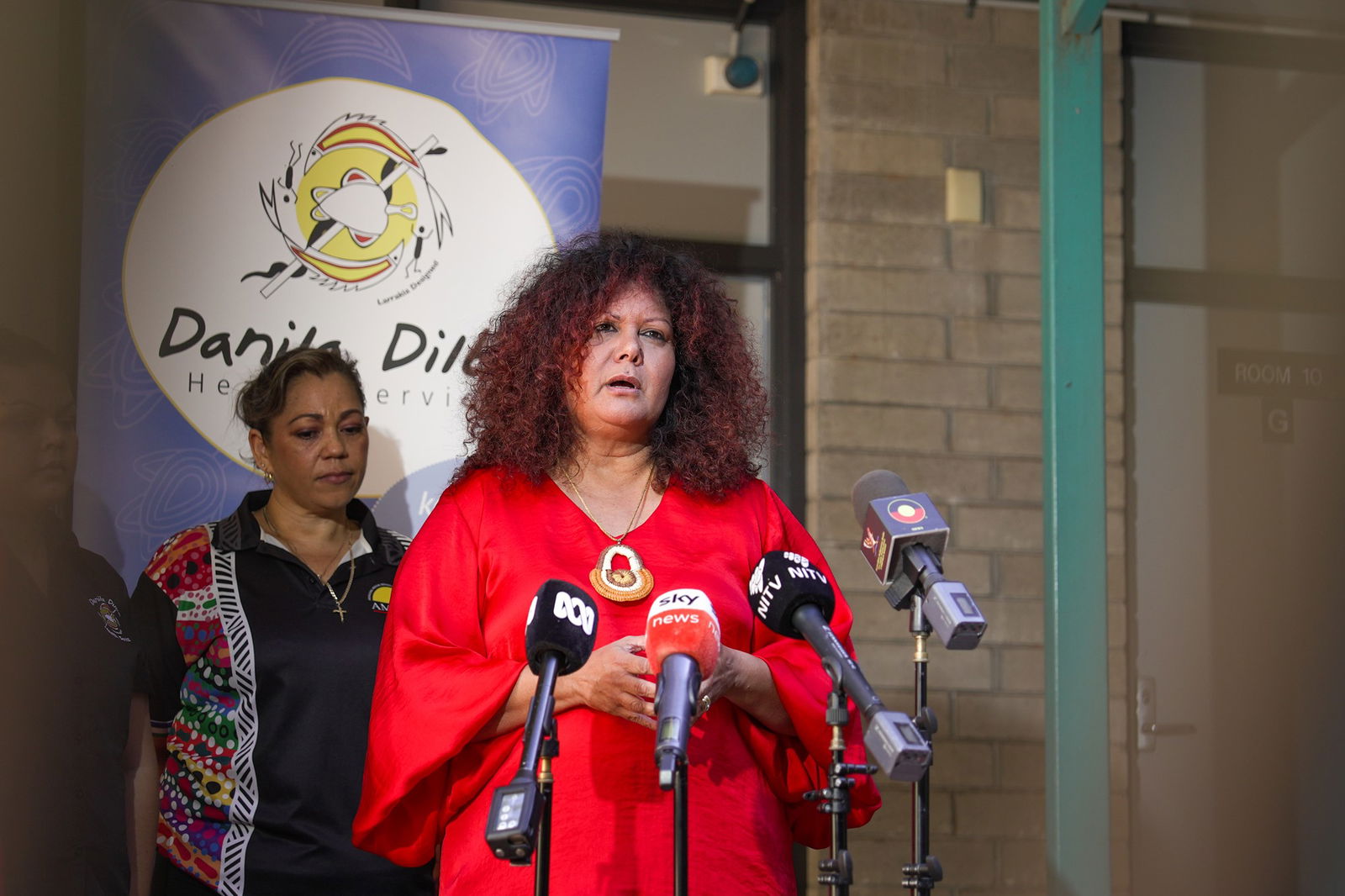Budget 2025: Coalition slams tax cuts as 'cruel hoax' — as it happened
Treasurer Jim Chalmers is being grilled by Sarah Ferguson after handing down his fourth budget.
- Here are the winners and losers from the federal budget
- What the government's 'cost-of-living' budget means for you
- Surprise $17b in tax cuts sets up election clash
Mr Chalmers says building a "more competitive and productive" economy is the "best defence" against tariffs and economic uncertainty.
Look back at how the day's developments unfolded.
Submit a comment or question
Live updates
We're wrapping up, here are the key takeaways
Thanks for joining us on this evening's budget blog.
There's a lot to recap but I'll try my best:
A new tax cut will see workers earning an average $79,000 a year would pay $268 less in tax in 2026
Labor will abolish non-compete clauses in workplace contracts in a move aimed at bolstering labour-force mobility
The deficit is expected to continue through 2035-36, with net debt rising from 19.9 per cent of gross domestic product to 21.5 per cent in 2025-26 and 23.1 per cent in 2028-29
Electricity bill rebates will be extended by six months, providing another $150 cut to power bills
You can also do your own digging via our winners and losers list or by checking out the interactive tax calculator.
And don't forget, you can always listen to our many podcasts for more insights from experts and reporters:
- ABC News Daily has a breakdown of this year's budget and what it means for you
- Meanwhile, Politics Now host Patricia Karvelas and chief digital political correspondent Jacob Greber discuss a government 'ready for battle'
You can look back at all the developments below or download the ABC News app and subscribe to our breaking news and politics alerts to stay up to date.
Banning non-compete clauses will lead to 'a horror show'
The government is spruiking its ban on non-compete clauses in the budget, which one in five Australian workers are subject to.
Non‑compete clauses are conditions in employment contracts that prevent or restrict an employee from moving to a competitor.
A ban on these clauses is aimed at freeing up low and middle income workers to move to higher-paying jobs in the same industry, boosting wages and productivity.
But CEO of the Australian Industry Group Innes Willox has described the move as a "horror show" and a "nightmare".
"It will lead to undoubtedly more litigation, renegotiation, and rewriting of employment contracts across the board."
"An employee can just pick up, walk around the corner, and start a new business tomorrow, completely undermining the employer who's taken enormous risks," he told ABC's PM program.
"Non-compete clauses are not widely used in Australia, they're not used by hairdressers and yoga teachers, as the government has said.
"That's just a complete furphy and a nonsense.
Nationals leader calls out lack of support for regional Australia
Nationals leader David Littleproud has condemned what he says is a lack of funding for regional Australia.
He says there's no money set aside for a number of key regional funds.
"Even after being in Government for three years, the Albanese Government will spend less than 1 per cent of Labor's infrastructure announcements in 2025-26," he says.
"Regional Australians will not only bear the brunt of more infrastructure cuts, but have the extra burden of Labor's cost-of-living crisis."
A budget fit for a panda
As we start to wrap up for the night, it's worth pointing this bit of good news (at least for the panda lovers amongst us).
Adelaide Zoo's Giant Pandas Xing Qiu and Yi Lan will be millionaires thanks to a $3.8 million spend over five years to support their ongoing stay.
The couple officially arrived at the zoo at the beginning of this year on loan from China with hopes that they may become a future breeding pair.

What do you want to know about this year's budget?
There's a lot to digest in this year's budget, but we want to hear from you and answer your burning questions.
How is the budget going to affect you and your household? Are the measures what you were hoping for, or have you fallen through the cracks?
Let us know using the link below, and we'll be using your responses to inform our coverage in the days and weeks going forward.
ICYMI: Shadow Treasurer calls tax cuts a 'cruel hoax'
What's in the budget for First Nations people?
Well overall, nothing new. A lot of the funding promises were outlined in the government’s Closing the Gap plan in February.
That $1.3 billion package over six years focused on economic empowerment, food security, health and wellbeing.
As a gentle reminder, for cost of living there was $50 million announced to reduce the costs of 30 essential products such as milk and nappies in more than 76 remote stores.
A big-ticket item was the $842.6 million over six years to assist the delivery of critical services in remote NT communities.
There’s $24 million towards the Indigenous Procurement policy, after a new target was announced in February that 3 per cent of government contracts should go to Indigenous-owned businesses.
And there’s $137.3 million over 3 years for the new “remote jobs” scheme that replaces the CDP.
As we mentioned earlier, the peak body for First Nations housing was hoping for a “significant and meaningful” proportion of mainstream housing funding to be redirected to First Nations community-controlled organisations – and that hasn’t happened.
But there is a $70.9 million boost to the fund that helps low-income First Nations people obtain home loans, of which $20 million will go towards single carers, most of whom are women.

Wondering what the PBS is and why you’re hearing so much about it?
You probably heard a bit about the Pharmaceutical Benefits Scheme (or the PBS) last week, given US Big Pharma companies sledged it and both sides of politics promised to make PBS scripts cheaper.
You’re probably going to continue to hear more about it, given the government has promised to drop the price of PBS-listed medicine to $25 if re-elected (and the Coalition then matched the promise).
These developments have prompted a flurry of Google searches, with questions such as “What is the PBS”, “What drugs are covered by the PBS” and “How can I get cheaper medicine” spiking in Australia.
If you have similar questions following the budget, we prepared this explainer for you earlier.
ICYMI: Treasurer Jim Chalmers is quizzed about his fourth budget
As we head into the late hours, it's worth recapping Jim Chalmers's chat with Sarah Ferguson following his budget speech.
Loading...Average income earners will get a tax cut of more than $1,600
Australians earning the national average income will earn a tax cut of more than $1,600 from 2026 onwards, according to the latest federal budget.
The new round of "modest" tax cuts form part of a slew of cost-of-living measures announced by the Treasury.
Treasurer Jim Chalmers said "families of middle Australia" would receive the most, with an average household receiving a combined benefit of "more than $15,000" over the next four years.
"We're delivering energy bill relief to every household, even cheaper medicines, historic investments in Medicare, higher wages and a fairer go for consumers," he said.
My colleague Brianna Morris-Grant explains what that may mean for you:
Analysis: The disability community will breathe a small sigh of relief, but it could be short-lived
Two things were at the top of the disability community’s wish list for the budget: ongoing funding for the NDIS, and a financial commitment for foundational supports – services for people with less severe disabilities and who aren’t participants of the scheme.
When it comes to the NDIS, the community will breathe a small sigh of relief with the knowledge that the scheme will continue to grow. They’ll also welcome some new money to continue the crackdown on fraud.
But concerns over recent changes, including strict lists about what participants can spend money on and new assessments due to come into effect, means that relief could be short-lived.
On the second thing — foundational supports — the budget shows $364 million to reform the Information Linkages and Capacity Building Program, which funds community-led support projects. The government has talked at length about the first stage of foundational supports being focused on information and capacity building, and this program fits that brief
Additional reporting from Evan Young
What's included in the budget for education funding?
I would love to hear more about the changes to education spending! The non-government school spending being more than public would be incredibly dissapointing.
- beau
Hi I was wondering if there was any new money for higher education in the budget?
- Keaghan
Hello Keaghan and Beau, thank you for writing in. Here's a quick wrap of what came out in the education space.
Treasurer Jim Chalmers said education was in the government’s top five priorities and there was significant money for childcare, schools and universities — but no new announcements.
On schools, the budget papers were light on details of the Commonwealth’s promised $16.5 billion public school funding deal with the states known as the Better and Fairer Schools Agreement (BFSA).
For now, Treasury has only tallied $7.6 billion dollars in spending for New South Wales, South Australia, Tasmania and the Australian Capital Territory.
The other states have agreed to the BFSA but are yet to sign formal bilateral agreements — one state only signed on yesterday and negotiations continue to be hammered out.
Private schools did not lose any money.
On higher education, there was $738 million over four years for a one-off election promise to cut student debt by 20 per cent (you can read more on that here).
And on childcare, the government has ‘guaranteed’ subsidised childcare for at least three days a week for all families earning less than $533,000 even if parents aren’t studying or working.
'Nowhere near enough' housing measures in budget
The government has highlighted several housing initiatives in the budget including:
- expanding the Help to Buy scheme;
- delivering 18,000 homes under the Housing Australia Future Fund;
- banning foreign home ownership for two years.
But public policy think tank CEDA says none of this will substantially shift the dial on supply and affordability.
"We're not seeing anything that's really addressing the underlying issues around supply," chief economist Cassandra Winzar told ABC's PM program.
"A lot of the community is concerned about housing, it's something that really impacts everyone.
"And there's nowhere near enough in this budget, or nowhere near enough in previous budgets either, to really shift the dial here."
Labor banking big on health spending, but doctors want more changes
After already announcing billions in health funding for urgent care clinics, bulk billing incentives and women’s health, there were few extra health surprises in tonight’s budget.
The centrepiece is $7.9 billion to expand bulk billing incentives to all Australians and sweeten the deal for GP practices that commit to bulk billing all visits under medicare instead of charging patients out of pocket.
The health minister’s initial announcement last month stated the increased funding means “nine out of 10 GP visits will be bulk billed” by 2030.
By tonight the Treasurer was saying the cash splash means “nine out of 10 GP visits should be fully bulk-billed”.
It effectively puts the onus back on doctors who are the ones to decide whether or not they take up the new incentives or continue charging patients out of pocket.
While the Australian Medical Association and Royal Australian College of GPs welcomed the funding, they’re concerned all those free GP visits the government is spruiking won’t materialise,unless there's major structural reform of Medicare rebates, especially higher rebates for longer consultations.
What the budget holds for business owners
The pre-election budget will provide small relief on both sides of the ledger — with about 1 million small businesses to receive another $150 in energy bill rebates, while a worker on average earnings will receive a $536 additional tax cut from 2027-28.
But businesses may face more competition to hang on to their staff, with the budget providing reforms to abolish non-compete clauses for most workers.
Business reporter Stephanie Chalmers breaks it down.
Budget just 'crumbs on the table' for First Nations justice, Lidia Thorpe says
Senator Lidia Thorpe says this budget is "crumbs on the table" for First Nations justice.
She says the 2022 budget presented First Nations justice front and centre but that every budget since has "seen a decline in Labor's interest and commitment to First Peoples".
"Three years later this budget offers so little — just more crumbs on the table," she says.
"Today's budget presents $1.3b for First Peoples over six years, but there's smoke and mirrors here.
"The majority of this consists of previously announced measures."
She adds there is very little support for Indigenous Australians outside of the NT.
"The measures in this budget that look to help women and children with family violence are good and needed, but when it comes to First Peoples, these must be delivered through our community controlled organisations," she says.
"We have to keep pushing for these services to be delivered for our people by our people."
Budget criticised for only offering 'band-aids' to mental health crisis
Australia is facing a critical moment in mental health. Emergency departments are overwhelmed with mental health presentations and the psychiatry workforce is buckling under demand.
So what’s in this budget to ease the crisis in mental health services? Well, there’s only a few items and most funding relates to previous announcements:
- Online mental health services are getting $46 million over four years. This honours a commitment made back in 2023-24 and provides funding to digital platforms that are low-cost or free and don’t require a referral.
- There’s $1.6 million for mental health support for Australians impacted by the conflict in the Middle East. This extends a measure announced back in 2023-24.
- There will be up to 150 scholarships for First Nations psychology students. This is part of the Closing the Gap funding commitments.
- There’s also a one-year extension of a program that helps train up psychiatrists in military mental health.
The Royal Australian and New Zealand College of Psychiatrists say this budget is just offering “band-aids”.
“The word ‘psychiatry’ has only been mentioned once in tonight’s Budget papers to refer to a pre-existing program. There has been no meaningful investment in growing the psychiatry workforce,” college president Dr Elizabeth Moore says.
“It is particularly striking – especially as workforce shortages continue to bite and bring the system to its knees in parts of the country."
Help to Buy scheme expanded in budget
One feature of tonight's budget is the expansion of the Help to Buy housing scheme.
The federal government says first home buyers will have the opportunity to own properties with lower deposits and smaller mortgages as part of an $800 million extension.
Here's more from Luke Cooper:
The budget includes money to help tackle dodgy education providers. It's been an issue for years
Regulators have struggled for years to get on top of shocking misconduct by dodgy private colleges that target or rip off vulnerable students.
A decade ago, I reported on salesmen going door to door in disadvantaged Tasmanian suburbs and signing up students for a prominent provider using fake entrance exams and the lure of so-called “free” laptops.
Last month, my colleague Adele Ferguson reported that dubious operators remain rife.
The regulator, the Australian Skills Quality Authority, is flat out investigating — conducting unannounced raids on providers, cancelling registrations of more than 50 private colleges in the year to June 2024 and revoking tens of thousands of student qualifications.
Previous money from the government allowed ASQA to set up an integrity unit and tip line.
They must be busy — because in this budget they’ve got another $4.7m “for urgent enforcement activity to counter fraud".
If you know more, feel free to drop my team a line: Specialist.Team@abc.net.au.
Energy rebates to be 'tapered off'
The budget papers forecast inflation to fall to 2.5 per cent this financial year — well within the Reserve Bank's target band of 2-3 per cent.
While it's expected to tick up slightly in 2025-26 to 3 per cent, it's forecast to dip back to 2.5 per cent, where it will remain steady over the forward estimates.
Finance Minister Katy Gallagher is asked by ABC's The Business if it's a sign the energy bill rebates, which have helped to bring down inflation, will stop at the end of the year?
Gallagher notes the forecast is "actually an improvement" from the mid-year budget update.
"The energy rebates are built into the inflation forecasts," she says.
"Look, we are looking at how we taper that support. They're not an ongoing payment, which is why we've extended it for six months, just to help households through to the end of, I think it's to the end of 2025."


